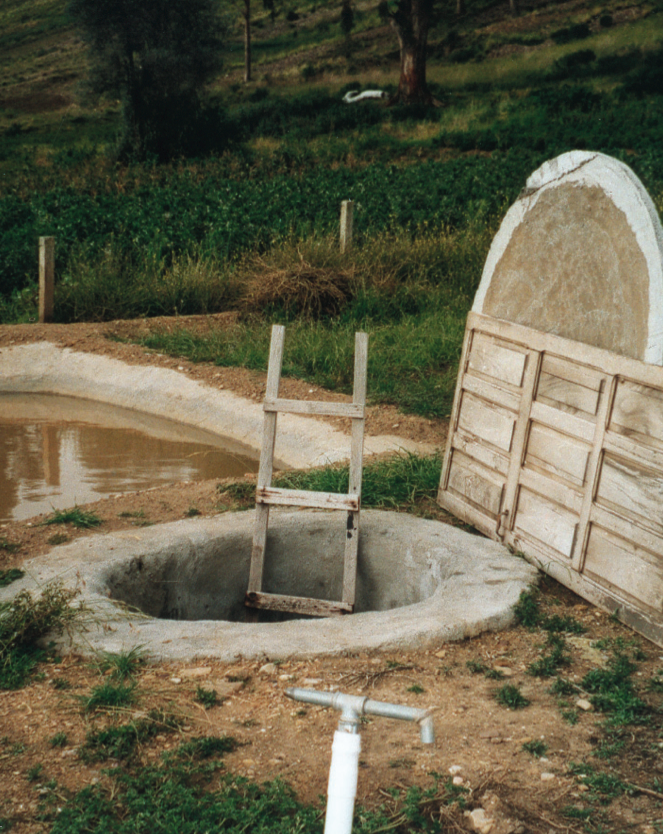Underground tank
Where access to groundwater is limited, rainwater harvesting in underground tanks can be an effective and low-cost solution. Water stored in the rainy season can be used in the dry season and lifted from the tank with a rope pump or with a FlexiEmas pump (see PVC pumps), which can elevate water up to 30 m.
The government, with support from organisations such as UNICEF and IRCSA (International Rainwater Catchment Systems Association) started a programme to construct one million rainwatertanks in Brazil.
Practica foundation is testing various options for low-cost storage and groundwater recharge like the "Reed cement tank" and the "Tube recharge"
| Advantages | Disadvantages |
|---|---|
| |
|
Capacity
40 litres / min from 10 meters depth.
Costs
- US$ 20-120 depending on model.
Applying conditions
- Numbers: 50,000 in Nicaragua, 20,000 in Mexico, Honduras, Guatemala, Ghana, Zimbabwe, Tanaznia, Senegal.
- Range of depth: 1-35 meter (60 m with two cranks).
- Application Communal wells, houshold, irrigation.
- Cost of introduction: US$ 10,000-20,000 per project, including 20 pumps, engineering and hands-on training. US$ 60,000-100,000 per project, including 1,000 pumps, production workshop and hands-on training.
Rope pump building manual
PRACTICA foundation and the Technical Training Programme of the ETC Foundation (TTP/ETC) have put together a really excellent manual on how to build rope pumps (PDF, 2.5 Mbyte). It is an 86 page long document with detailed instructions.
External links
- Evaluations www.irc.nl
- Africa www.pumpaid.org
- General info www.ropepump.com
- How to build www.ropepumps.org

